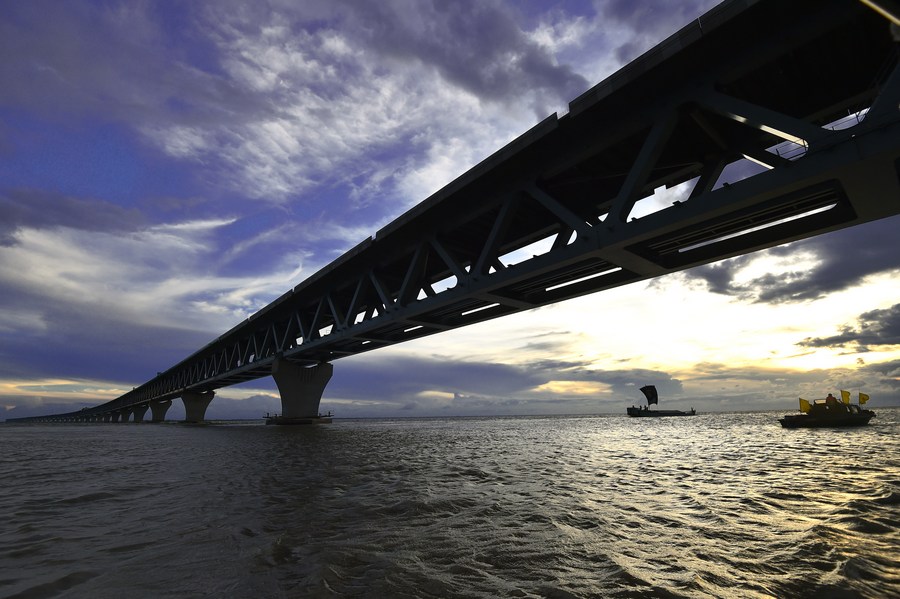BEIJING: China said on Monday that it welcomes all initiatives on improving global infrastructure but opposes attempts to smear the Belt and Road Initiative (BRI).
“China always welcomes all initiatives to promote the building of global infrastructure,” Chinese Foreign Ministry spokesperson Zhao Lijian said in response to a question on the “Partnership for Global Infrastructure and Investment” launched by the Group of Seven (G7).
China believes that different infrastructure initiatives will not replace each other, but the country opposes “advancing geopolitical calculations” or “smearing the BRI” in the name of building infrastructure, Zhao said at a regular press briefing.

A photo taken on September 12, 2021 shows a view of the China-built Padma Multipurpose Bridge under construction in Munshiganj on the outskirts of Dhaka, Bangladesh. /Xinhua
U.S. President Joe Biden and other G7 leaders relaunched the newly renamed “Partnership for Global Infrastructure and Investment” on Sunday at their annual summit at Schloss Elmau in southern Germany. They pledged to raise $600 billion in private and public funds over five years to finance infrastructure in developing countries.
The move is seen as an attempt to counter the China-proposed BRI. Western officials have claimed that countries participating in the BRI could fall into a “debt trap,” which China has repeatedly denied.
Proposed by China in 2013, the BRI comprises the Silk Road Economic Belt and the 21st Century Maritime Silk Road, and aims to build trade and infrastructure networks connecting Asia with Europe and Africa along and beyond the ancient Silk Road routes.
Zhao said the so-called “debt trap” problem of the BRI is an “utterly false proposition.” No country participating in the BRI endorses the claim, he said.
The BRI has brought tangible benefits to people in countries involved, he said. According to a report from the World Bank, BRI transport projects could help lift 7.6 million people out of extreme poverty and 32 million people out of moderate poverty globally from 2015 to 2030, he noted.
The United Stated is the real creator of “debt traps,” he said, adding that U.S. behaviours such as “expansionary monetary policy, underregulated financial innovation and malicious short selling” have exacerbated the debt burden of developing countries.
Zhao said the U.S. had proposed the Build Back Better World (B3W) plan at last year’s G7 summit as an alternative to the BRI on infrastructure building.
“No matter it is the B3W plan or some other initiatives, the international community hopes to see real investment and projects that bring tangible benefits to people,” he concluded.























